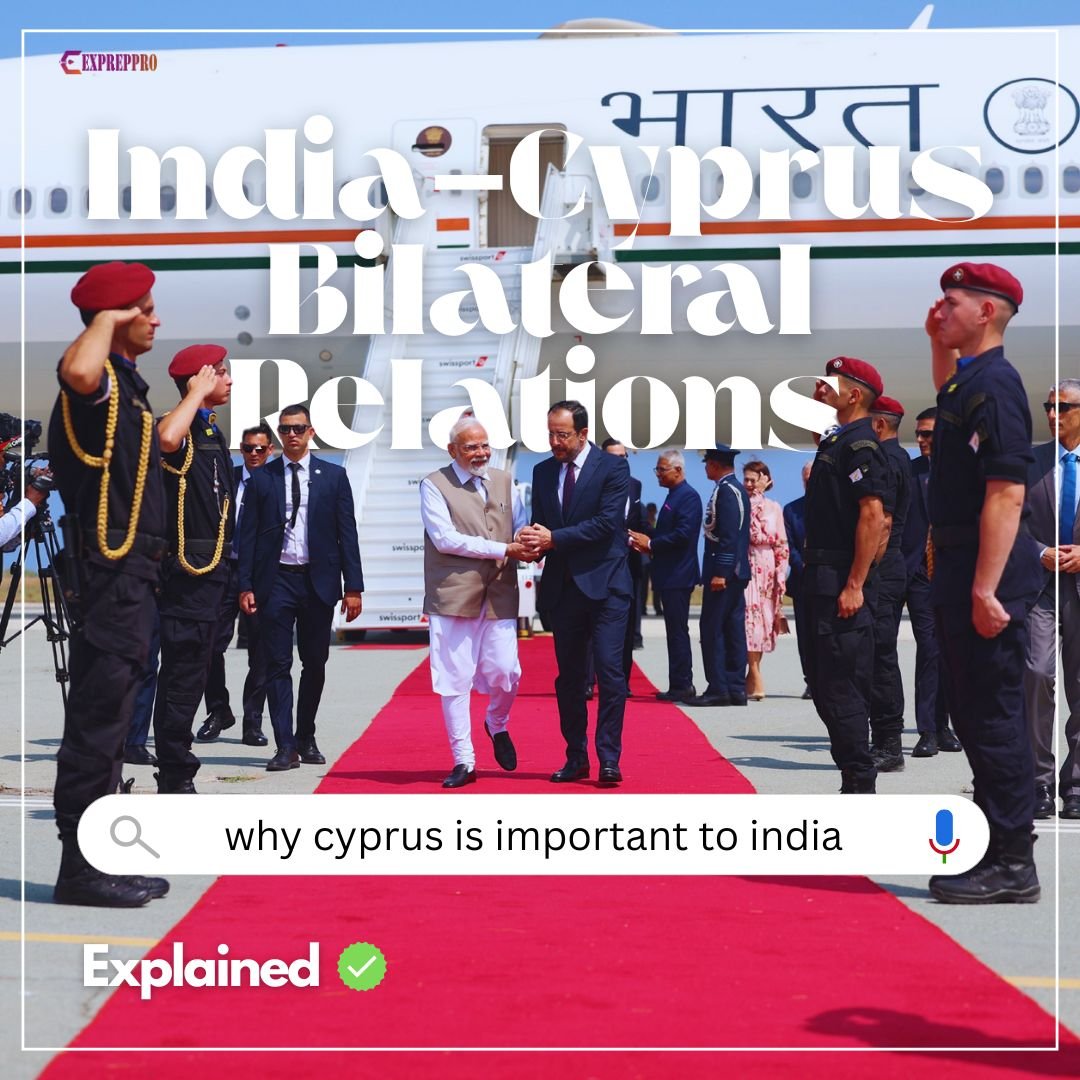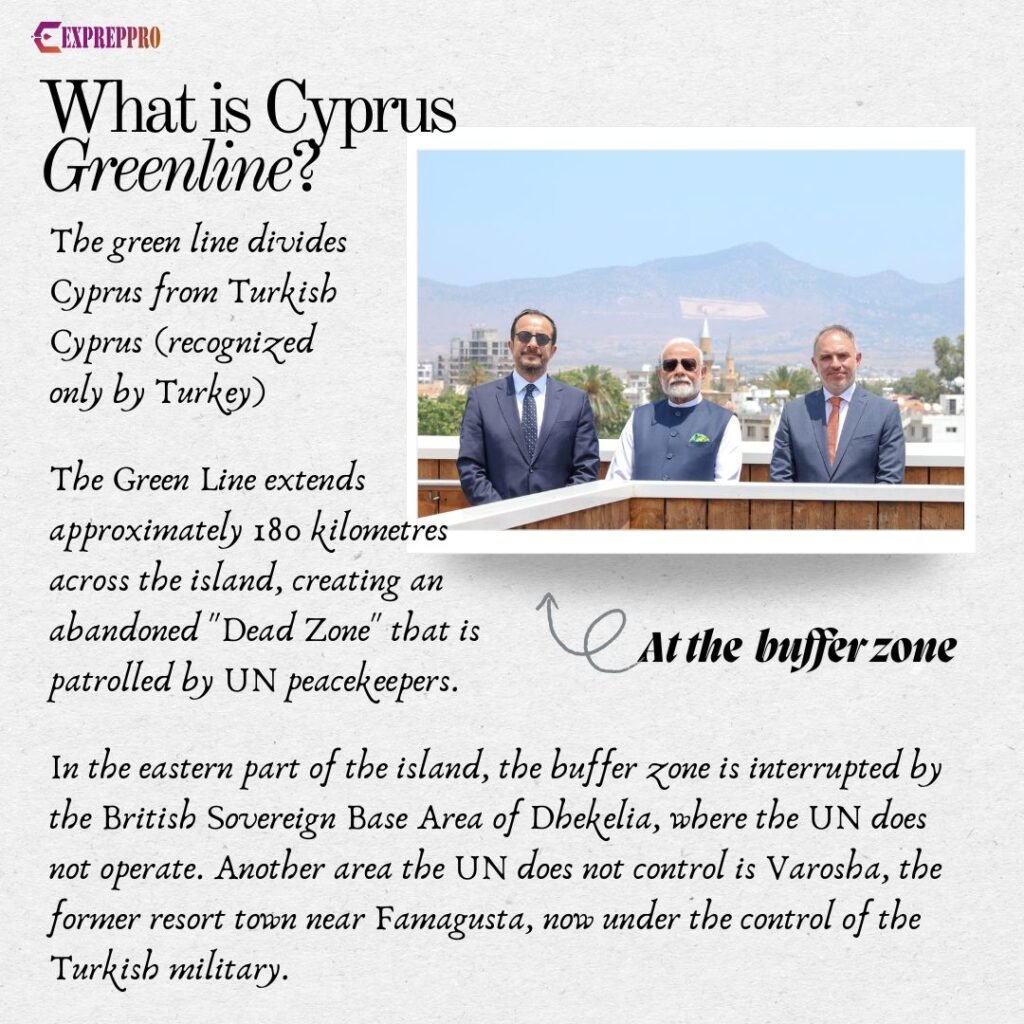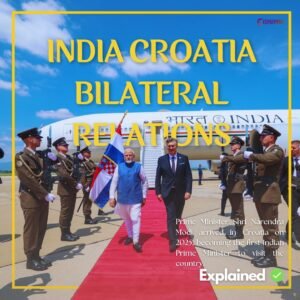
Cyprus and India have traditionally enjoyed excellent relations, and Over the past six decades, the relationship has grown stronger, including in the areas of economy and trade.Indian Prime Minister Narendra Modi visited Cyprus as part of a three-nation tour aimed at strengthening bilateral ties.
History of India-Cyprus Bilateral Relation
The history of India Cyprus bilateral relations dates back to the time of the first President of Cyprus, Archbishop Makarios, and the first Prime Minister of India, Pandit Jawaharlal Nehru. Diplomatic ties between Cyprus and India came into effect two years after Cyprus became independent from British colonial rule on February 10, 1962, and for over 60 years, both countries have maintained trustworthy relationships.
Cyprus extended its full support for the India-US Civil Nuclear Agreement within the Nuclear Suppliers Group (NSG) and the International Atomic Energy Agency (IAEA), as well as India’s permanent membership to the United Nations Security Council.
India has consistently endorsed the solution to the Cyprus issue based on UNSC resolutions and international law. India has contributed three Force Commanders serving in UN Peace Keeping Force in Cyprus since its creation in 1964, namely Lieutenant General PS Gyani, Major General Diwan Prem Chand, and General KS Thimayya, who died in frontline in 1965 in Cyprus, was honoured by a commemorative stamp and naming an avenue in Larnaca in Cyprus in his memory in 1966.
Previous Indian Visits to Cyprus as part of India Cyprus bilateral relations
- Mrs.Indira Gandhi in 1982 and Mr.Atal Bihari Vajpayee in 2002, as Prime Minister of India, visited Cyprus as part of India-Cyprus bilateral relations.
- In 2025, Prime Minister Mr. Narendra Modi visited Cyprus to strengthen relations. Modi, the first Indian PM to visit Cyprus in 23 years. He also visited the Green Line, which is the de facto border between the Republic of Cyprus and Northern Cyprus.
- The then-President of India,Shri Ram Nath Kovind, visited Cyprus in September 2018.
- Apart from these visits, Prime Minister Narendra Modi met with President Nicos Anastasiades during the UNGA in New York in September 2019 and at CHOGM in London on April 20, 2018.
What is Greenline or United Nations Buffer Zone in Cyprus?
- The green line divides Cyprus from Turkish Cyprus (recognized only by Turkey).
- It was initially designated in 1963 by British Major-General Peter Young to suppress intercommunal violence.
- After the Turkish invasion in 1974, the Green Line became the de facto border.
- The Green Line extends approximately 180 kilometres across the island, creating an abandoned “Dead Zone” that is patrolled by UN peacekeepers.
- Various diplomatic initiatives, including the Annan Plan in 2004, tried to unify Cyprus with Turkish-controlled Cyprus but failed.

Significance of Current Visit Of Prime Minister Narendra Modi
- Visit will strengthen India-Cyprus bilateral relations.
- To give a strong message to Turkiye, an ally of Pakistan, which supported Pakistan during Operation Sindoor.
- Both countries decided to collaborate in fighting all forms of terrorism. Cyprus has backed India on the issue of terrorism.
- PM Modi attended a roundtable meeting in Limassol alongside President Nikos Christodoulides and business leaders from both Cyprus and India.
- President Christodoulides will award Modi the Grand Cross of the Order of Makarios III – the highest honour in Cyprus.
- The visit will strengthen Cyprus, an important partner in the field of Foreign Direct Investment for India.
- Its location and importance as an EU member will help India in Mediterranean outreach and business. The largest bank in Cyprus has already announced its decision to open a representative office in Mumbai.
- Cyprus can enhance east-west connectivity through the India-Middle East-Europe corridor, also known as IMEC.
- An MOU was signed between the NSE International Exchange GIFT CITY, Gujarat, and the Cyprus Stock Exchange; both leaders welcomed it.
- NIPL (NPCI International Payments Limited) and Eurobank Cyprus have reached an understanding to introduce UPI for cross-border payments between the two countries, which will benefit tourists and businesses.



